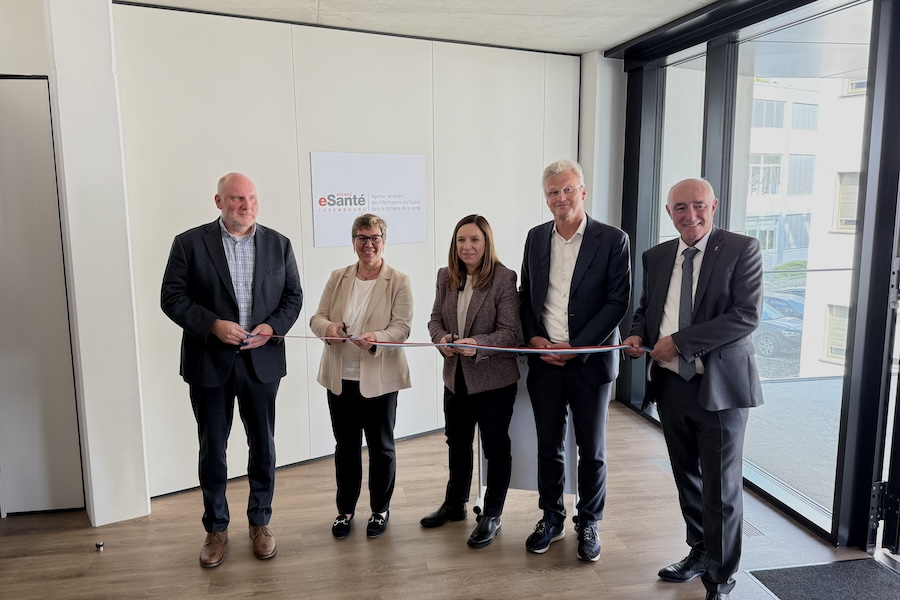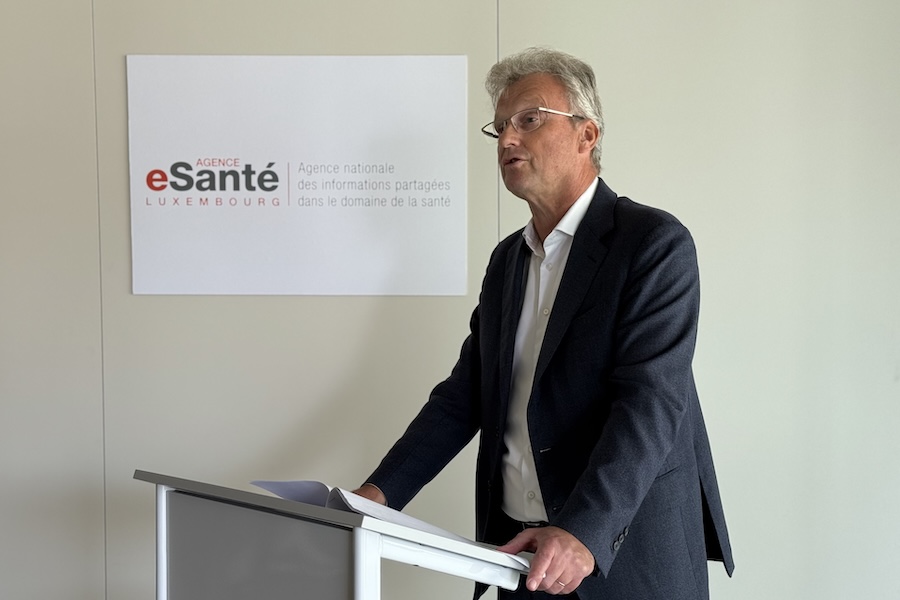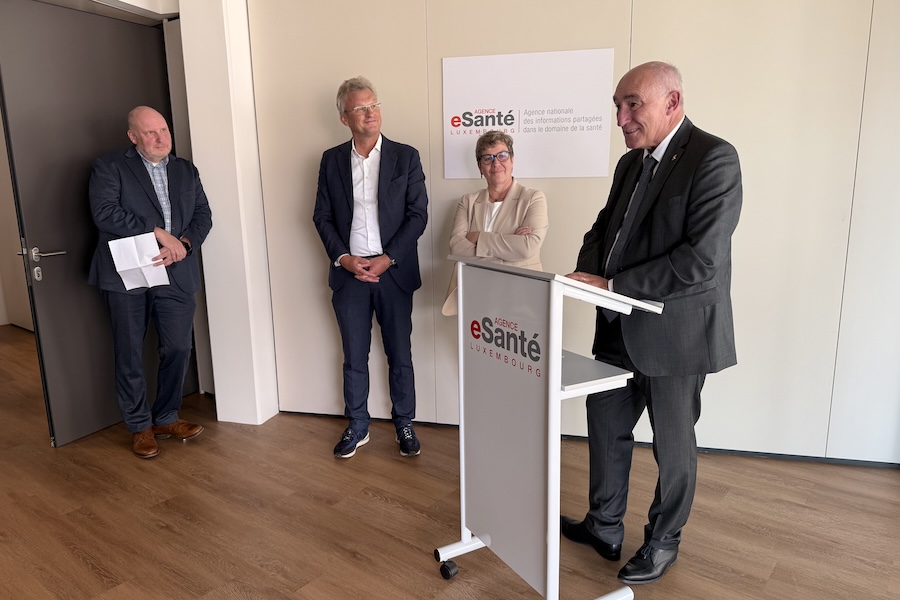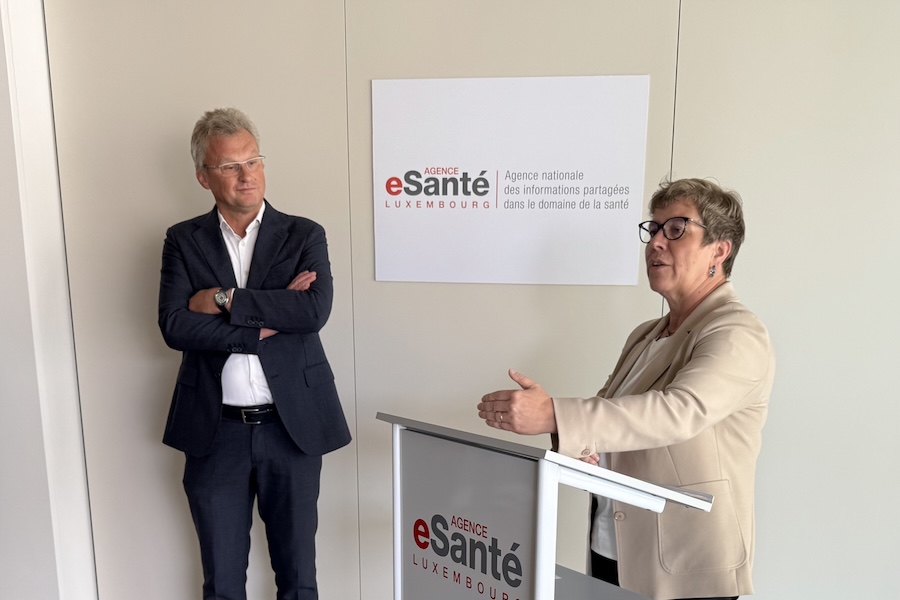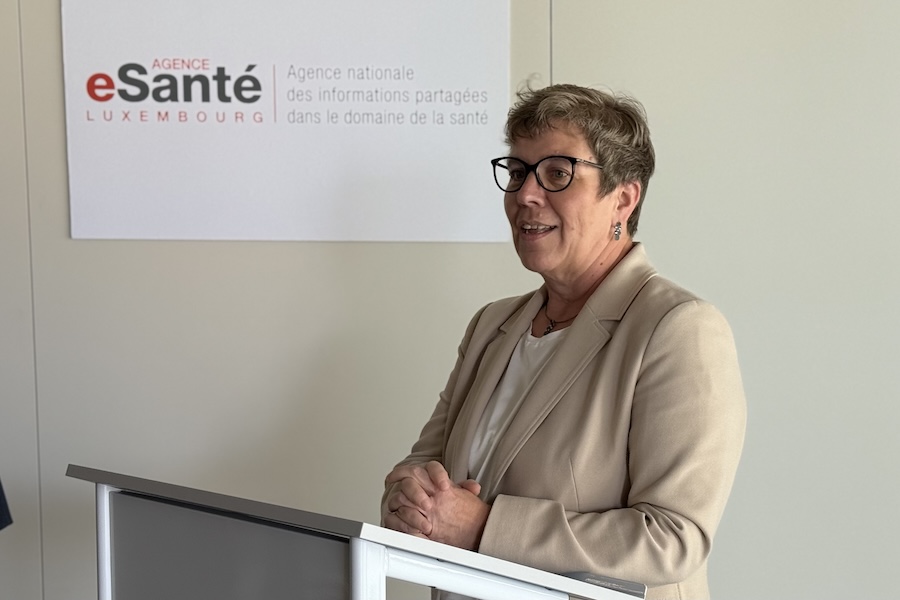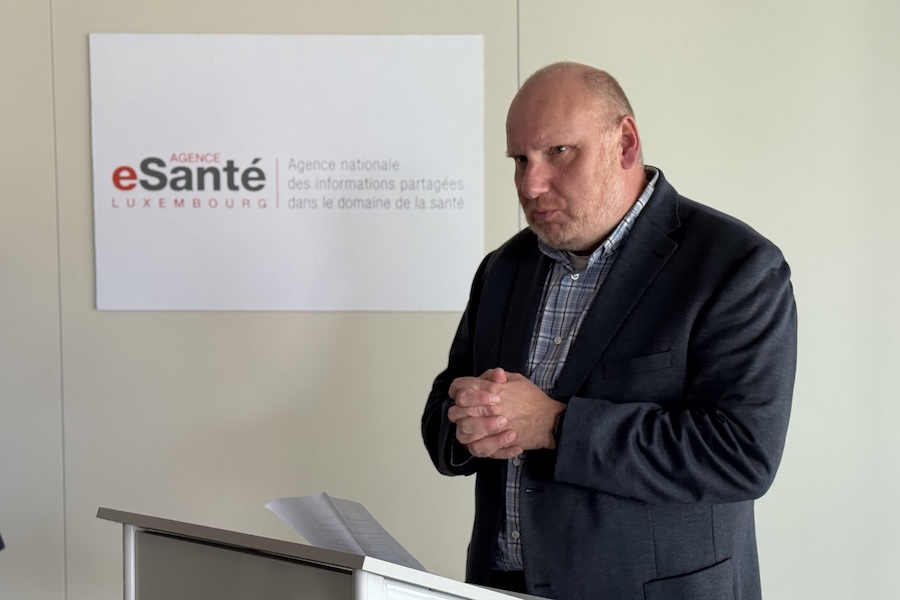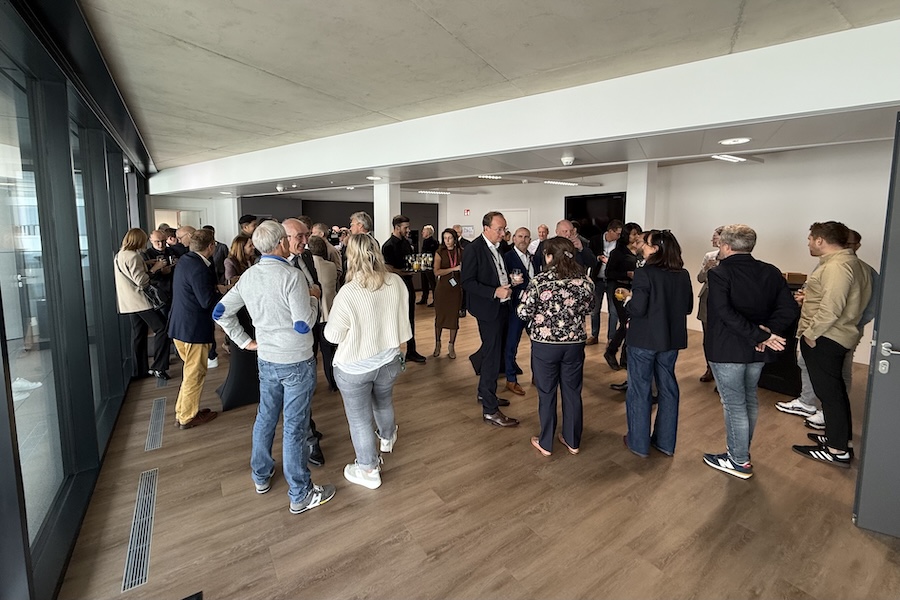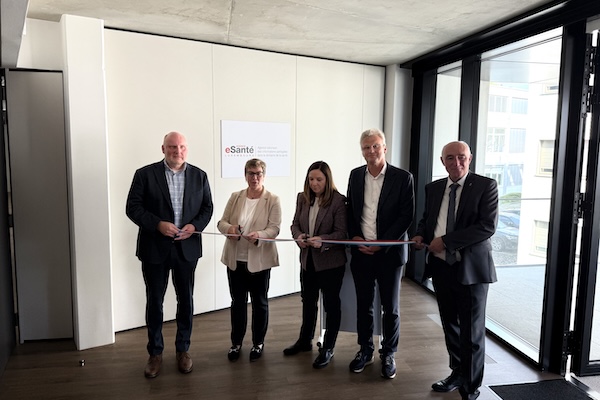 (L-R) Ian Tewes, CEO of Agence eSanté; Martine Deprez, Luxembourg Minister of Health and Social Security; Stéphanie Obertin, Luxembourg Minister for Digitalisation; Marc Hostert, Chairman of the Management Board of Agence; Nico Pundel, Mayor of Strassen;
Credit: Ievgenii Karanov, Chronicle.lu
(L-R) Ian Tewes, CEO of Agence eSanté; Martine Deprez, Luxembourg Minister of Health and Social Security; Stéphanie Obertin, Luxembourg Minister for Digitalisation; Marc Hostert, Chairman of the Management Board of Agence; Nico Pundel, Mayor of Strassen;
Credit: Ievgenii Karanov, Chronicle.lu
On Wednesday 1 October 2025, Agence eSanté celebrated the official inauguration of its new premises in Strassen, in the presence of Luxembourg's Minister of Health and Social Security, Martine Deprez, and Minister for Digitalisation, Stéphanie Obertin.
According to the Agency, the move marked an important step in the development of its activities. The relocation had become necessary due to the growing size of its team, which is expected to expand further in the coming years to carry out its various missions and projects. With the new offices equipped with four meeting rooms, Agence eSanté is now also better positioned to organise its many working groups and information sessions and to host health sector stakeholders taking part in these meetings.
Marc Hostert, Chairman of the Management Board of Agence eSanté, underlined in his opening speech that the new premises symbolise “a fresh momentum for the agency” and for the digital transformation of Luxembourg’s healthcare sector. He stressed that Agence eSanté will play “a key role” in implementing the European Health Data Space, both in facilitating the secure exchange of health data across borders and in supporting national tools such as the personal health record and the electronic vaccination record.
Minister Deprez, thanked the team for their commitment: “It has not always been easy, and it will not always be easy, but you are on the front line addressing user concerns and working towards the next-generation personal health record. Together we must coordinate all efforts to be ready for the European Health Data Space by 2029.”
Nico Pundel, Mayor of Strassen, welcomed the agency to the commune: “Strassen is home to over 10,000 residents of 117 nationalities. It is a place for everyone, and we are pleased to host Agence eSanté here. Personally, I find the personal health record to be an excellent tool - I discovered my own blood tests and scans stored there. This is the future, and I hope that soon all this information will be accessible in an even simpler way.”
According to the Agency, under Article 63 of the Social Security Code, patients’ health data can be accessed by healthcare professionals in other EU countries for primary care via the MyHealth@EU service. This cross-border dimension is described as an essential part of the future European Health Data Space (EHDS).
Mr Hostert told Chronicle.lu: “We have more than 230,000 people who have access to the system, but most of them do not use it, since it is mainly for people who are ill. Nevertheless, it will become very important in the European context - for commuters, for expats moving between countries, for families with young children or elderly relatives. The next step will be vaccination alerts, so people no longer need to check their vaccination card but will be notified directly when to see a professional.”
The Agency added that the EHDS also covers the secondary use of health data for research and public health through HealthData@EU. The objective is to establish a secure, harmonised and efficient framework for exchanging and sharing data across Europe, while supporting the development of a single market for electronic health record systems.

